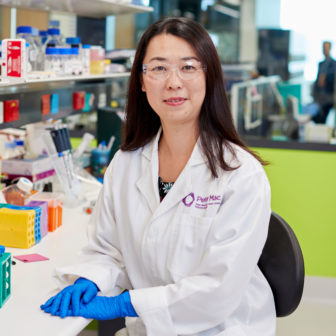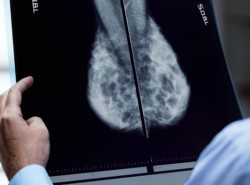
Breast cancer therapy using dual-specific T cells
Published: 10/9/19 1:48 AM

Clare Slaney
Chimeric antigen receptor (CAR) T cell therapy is a novel form of immunotherapy where white blood cells are transferred to the patient to boost the immune system. It has recently had remarkable effects in patients with cancers of the blood, such as leukaemia; however, the success against solid cancers has been modest.
In particular, advanced breast cancer has large solid tumours that have spread to other organs of the body, which are very difficult to treat with current therapies.
Dr Clare Slaney and her team have made a breakthrough in a new treatment for breast cancer that can eradicate large tumours in mice, which has not been possible before. Preliminary research data also demonstrates that following the initial treatment the immune system develops a memory response able to fight recurring tumours.
This exciting new approach involves a transfusion of white blood cells plus an injection of a vaccine. The white blood cells are genetically modified to attack breast cancer cells, and the vaccine is made up of a virus that also has the power to attack cancer cells.
In this project, Dr Slaney will seek to more fully understand how the combined treatment works, and test the treatment against tumours that have spread to other organs. She believes that once administered, the treatment could potentially remain effective even after the primary tumour is eradicated, eliminating any remnant or newly arising tumour cells. This is particularly important, as the threat of breast cancer recurrence in other organs is a constant worry for patients.
This study will serve as preparation for a clinical trial in cancer patients, which could be ready in 5-10 years. If successful, it would represent the most effective new breast cancer therapy known and could have a significant impact for reducing breast cancer mortality.

